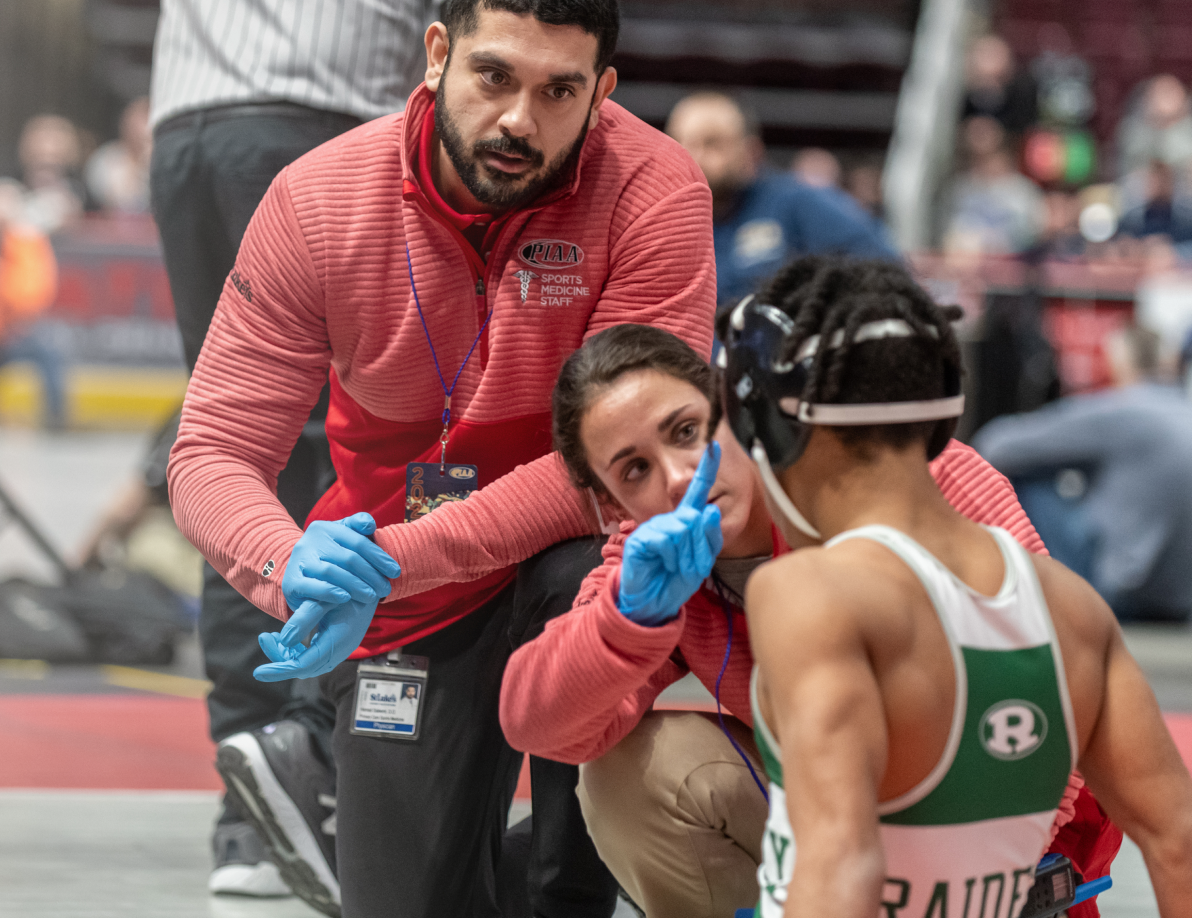Sports-Related Concussion Treatment
Helping you get back in the game.

Choose the region’s leading concussion experts.
Signs and symptoms
Concussions result in a range of symptoms depending on the individual and injury. It's important to note that loss of consciousness occurs in only about 10% of concussions, and signs and symptoms may not appear until several days after your injury.
Who do we care for?
- Ages 8 to 25: If you’ve sustained a concussion within the last 30 days, call 484-526-6784 to schedule an appointment.
- Under 8 or over 25, or concussion occurred more than 30 days ago: Call your primary care provider for a screening and referral.
Concussion emergency signs
Call 9-1-1 or seek immediate medical attention if you’re experiencing any of the following symptoms:
- Inability to recall new events after the injury (anterograde amnesia)
- Confusion, restlessness, or agitation
- Headache that worsens and persists
- Loss of consciousness or extreme drowsiness
- One pupil larger than the other
- Repeated vomiting
- Seizures or convulsions
- Slurred speech or unusual behavior
- Symptoms of associated head/neck injuries, spine, or skull fractures
- Weakness, numbness, or decreased coordination
- Unable to recognize people or places
Concussion modifiers
Concussion symptoms can be prolonged or intensified if you have pre-existing conditions, known as “concussion modifiers.” Examples of these modifiers include:
- ADHD (attention deficit hyperactivity disorder)
- ADD (attention deficit disorder)
- Emotional and mental health disorders
- Headaches or migraines
- Learning disabilities
- Previous concussions
Experience the power of teamwork.
When you're recovering from a concussion, we're here for you. At St. Luke's, we prioritize your health and safety by creating a personalized care plan. You'll have a dedicated team of experts closely monitoring you recovery, including:
- Physicians
- Psychologists
- Physical therapists
- Athletic trainers
- Education specialists
Student-athletes may need a short break from school and extra support when returning to avoid overloading their healing brain. Discuss your return-to-learn plan with your St. Luke's Concussion Specialist.
St. Luke’s uses a 6-stage return-to-play protocol that’s implemented by your Athletic Trainer. Each stage takes a minimum of 24 hours. If any signs or symptoms arise, stop and inform your Athletic Trainer or Concussion Specialist.
Stage 1:
Begin with 24 hours of symptom-free rest and normal cognitive activities like attending school and interacting with peers.
Stage 2:
Gradually introduce 15-40 minutes of light aerobic exercise at 70% max heart rate to start elevating heart rate.
Stage 3:
Progress to 15-40 minutes of individual sport-related drills, focusing on agility and pace changes while avoiding head impact activities.
Stage 4:
Engage in non-contact training drills, including sport-specific skills, potentially start resistance training.
Stage 5:
Move on to full practice participation, including contact drills, to restore confidence and assess functionality during play.
Stage 6:
Finally, return to normal game activity with regular exertion. If any symptoms reoccur, stop immediately and inform your athletic trainer or concussion specialist to ensure a safe recovery process.
To resume your sport after a concussion, you must:
- Be symptom-free at rest and during normal activities
- Fully return to school
- Achieve a normal score on neuropsychological testing
- Obtain clearance from their St. Luke's Concussion Specialist
Baseline concussion testing allows your provider to evaluate a suspected concussion and assess your ability to resume your sport. St. Luke’s Sports Medicine affiliated school districts and select youth organizations offer access to this testing.
Worried you may have a concussion?
If you think you’ve suffered a concussion, seek immediate medical attention and call the St. Luke’s Concussion Hotline at 484-526-6784.